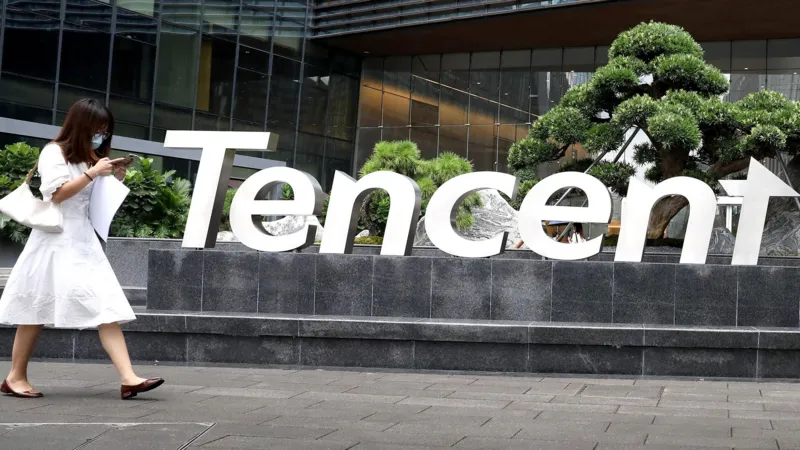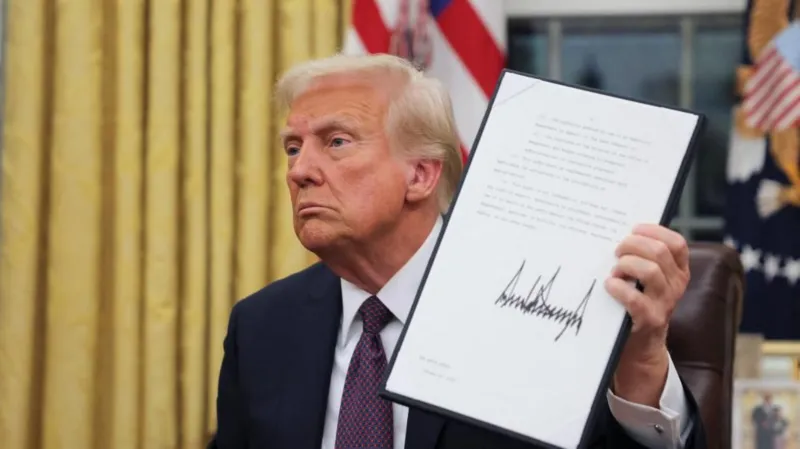In a significant development that could have wide-reaching implications for global tech and investment sectors, the United States has officially designated Tencent Holdings, one of China’s most prominent technology companies, as a “Chinese military company.” This move comes as part of an ongoing effort by the U.S. government to address perceived national security risks associated with Chinese enterprises allegedly linked to the People’s Liberation Army (PLA).
Tencent, best known for its vast portfolio of technology services, including social media platforms like WeChat, gaming, and cloud computing, is one of the largest companies in the world by market capitalization. Its inclusion on the U.S. Department of Defense’s list of companies identified as having ties to the Chinese military marks an escalation in the already tense U.S.-China trade and technology relations.
Background on the U.S. Policy
The designation stems from an executive order first issued in November 2020, aimed at restricting American investments in Chinese companies that the U.S. believes support Beijing’s military-industrial complex. Under this order, American individuals and entities are prohibited from purchasing or holding publicly traded securities of such companies.
The policy has grown in scope as the U.S. government continues to scrutinize Chinese firms with alleged links to state surveillance, military modernization, and intellectual property theft. Other major Chinese corporations, including Huawei and ZTE, have faced similar allegations, leading to sanctions and trade restrictions in recent years.
Why Tencent Was Targeted
The U.S. government has justified its decision by citing Tencent’s strategic importance within China’s technological ecosystem and its alleged collaboration with the Chinese government on data collection, artificial intelligence, and other dual-use technologies with military applications. WeChat, Tencent’s flagship product, is of particular concern due to its widespread use for communication, payments, and social networking, both within China and globally.
Critics of Tencent argue that its platforms facilitate extensive surveillance and censorship. The U.S. has previously accused Tencent of sharing sensitive user data with Chinese authorities, allegations that the company has consistently denied.
Implications for Tencent and the Global Tech Sector
The designation could have profound consequences for Tencent’s operations and reputation. Restrictions on U.S. investments may hinder the company’s ability to raise capital, attract partnerships, or expand its footprint in Western markets. Tencent’s global ambitions, particularly in gaming and cloud computing, could also face additional hurdles as governments and businesses grow wary of associating with a blacklisted entity.
For American investors, the move raises concerns about access to one of the world’s most dynamic tech markets. Tencent has been a favorite among global investors due to its rapid growth and dominance in various sectors. The designation could force asset managers and institutional investors to divest their holdings, potentially leading to market instability.
Geopolitical and Economic Ramifications
This development underscores the intensifying rivalry between the U.S. and China over technology and economic dominance. It signals a broader trend of decoupling between the two nations in critical industries, particularly in semiconductors, telecommunications, and artificial intelligence.
China is likely to view this move as yet another attempt to curtail its technological advancements and global influence. Beijing has previously condemned similar actions, accusing the U.S. of abusing its national security laws to suppress Chinese enterprises. Retaliatory measures could further strain diplomatic and trade relations between the two superpowers.
What Lies Ahead
The designation of Tencent as a “Chinese military company” highlights the increasingly contentious interplay between technology, national security, and geopolitics. While the immediate impact on Tencent and its operations remains to be seen, the move is part of a broader trend that could reshape global supply chains, investment strategies, and technological collaborations.
As tensions continue to escalate, businesses, investors, and governments worldwide will be closely monitoring how this designation affects Tencent and the broader landscape of U.S.-China relations. Whether it leads to greater transparency and security or exacerbates the technological and economic divide between the two countries remains an open question.

 Fashion4 months ago
Fashion4 months ago
 Sports5 months ago
Sports5 months ago
 Fashion4 months ago
Fashion4 months ago
 Learning3 months ago
Learning3 months ago
 News3 months ago
News3 months ago
 Technology5 months ago
Technology5 months ago
 News4 months ago
News4 months ago
 Hot News2 months ago
Hot News2 months ago









